
The Next Great Policy Opportunity of Our Generation
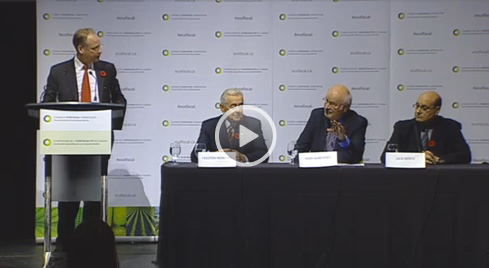 On Tuesday, November 4th, Canada’s Ecofiscal Commission held its launch at the Design Exchange, on the old trading floor, in downtown Toronto. Below is Chris Ragan’s inaugural speech. You can watch the full event, including remarks from Jean Charest, Preston Manning, Michael Harcourt and Jack Mintz here.
On Tuesday, November 4th, Canada’s Ecofiscal Commission held its launch at the Design Exchange, on the old trading floor, in downtown Toronto. Below is Chris Ragan’s inaugural speech. You can watch the full event, including remarks from Jean Charest, Preston Manning, Michael Harcourt and Jack Mintz here.
My name is Chris Ragan, and I am the Chair of Canada’s Ecofiscal Commission. For those of you who don’t know me, by day I’m a mild-mannered economics professor at McGill University. (Those who do know me might question the mild-mannered bit — but no matter!)
As Canadians, we know that we are incredibly lucky. Our famed “peace, order, and good government” is a beacon to many in a world full of serious challenges. And we enjoy a level of prosperity envied around the globe.
I’ve spent the last 25 years of my life focused on economic policy, and that education has convinced me that we owe our prosperity to more than simply the combination of good luck and a rich natural bounty.
What else has mattered? Over almost 150 years, we have come together as a people to make many smart and practical policy decisions – from the creation of public health care and public pensions to the evolution toward free trade and fiscal responsibility.
But it’s now clear that we’ve hit a bit of a roadblock. In trying to make both economic and environmental advances, many people see these goals in competition. They think it’s necessary to choose between them – that we can only improve our environmental health by sacrificing our economy.
Let me state clearly right now: I believe this choice is not necessary – nor even possible. Especially in a resource-rich country like Canada, our economic strength is built upon the health of our environment.
This fundamental belief is why I’m here today — and it is what has united our Commissioners and Advisors.
Today, Canada’s Ecofiscal Commission released its inaugural report. This is the first of many reports we’ll be producing over the next 5-6 years.
Our first report presents the case for smart, practical and achievable fiscal policies for Canadian governments across the country — policies that will help to create a stronger economy and a healthier environment for Canadians now, and into the future.
What is Ecofiscal
Some of you might have stumbled over the name—ecofiscal. This is a new word to start a new conversation about a suite of policies pragmatically designed to simultaneously improve our economic and environmental performance.
As a Commission full of economists, you won’t be surprised to hear that we recognize and admire the remarkable power of markets. But we’re also aware of the problems that follow from faulty price signals – such as those created when we’re all permitted to treat the environment as a free-disposal garburator.
Ecofiscal policies are designed to correct these faulty price signals. To encourage the things we like—investment, better jobs and innovation—while discouraging the things we dislike—pollution, waste, environmental damage.
The components of ecofiscal policies
There are two parts to ecofiscal policies. First, they involve putting prices on various kinds of pollution and environmental damage, and thereby creating real incentives for investment in clean, innovative technologies.
The second part is just as important. Ecofiscal policies generate revenue that can be “recycled” back into the economy in a variety of ways to generate further benefits. The options include: reducing taxes that most impede growth and employment; investing in R&D or critical infrastructure; and returning money to low-income families.
For any specific ecofiscal issue, these options need to be carefully explored; and different governments in different regions are likely to choose different options to suit their different priorities.
Such differences are an essential part of Canada, and Canadian policy.
Better policy options for our governments
This launch is the starting point for getting better policy options on the table for our governments – especially those in our provinces and cities, for which many of the issues we’ll examine are most relevant.
As we look around from the trading floor of this old stock exchange, we’re surrounded by these beautiful images, painted by Charles Comfort. In the 1930s, these heroic images provided hope for Canadians weary of the Great Depression. Today, they remind us that our natural wealth—our water, forests, prairies, and mountains—have always underpinned our economic growth.
Canadians know this instinctively. Overwhelmingly, they want an economy that supports our pristine air and water, as well as the clean and livable communities that make our quality of life among the most envied in the world.
But Canadians also know that something is going off-track. Smog, water pollution, traffic congestion, excessive waste, harmful carbon emissions—all of these problems are already costing us dearly. They cost us directly as out-of-pocket expenses for cleaning up damage. They cost us in lost income and productivity. And they cost us in poorer health and shorter lives.
The economic impact of pollution
In short, pollution of various kinds brings significant economic costs. If we do nothing, these costs will mount over time – not only threatening our own prosperity but also leaving a significant economic and environmental burden to our children and our grandchildren
But the good news is that we can do better. Canadians and their governments — across the country — can choose to make more use of smart and practical ecofiscal policies.
And we know these policies can work effectively. We know this because we’ve examined their use in other countries—from Singapore’s water-pricing program and London’s road-congestion fee to the UK’s waste-pricing policies and Denmark’s carbon-pricing tax reform.
OECD countries that have used ecofiscal policies show not only better environmental performance, but also consistent economic performance and a pattern of greater innovation — which ultimately drives a stronger economy.
We are not suggesting that it’s as simple as cutting and pasting other nations’ policies onto Canada. Our regional and economic diversity make us unique. We therefore need ecofiscal policies tailor made for our diverse provinces and cities. This is why we’ll travel across the country to hear from Canadians, so we can ground our recommendations in their practical realities.
Let me make one other point: NOW is the best time to get started. The world is already moving in this direction, and is actually further down this road than we are. And the longer we delay, the more those costs will mount.
I said earlier that Canadians have a history of making sensible policy decisions, even amid controversy. I strongly believe that ecofiscal reform is the next, great policy opportunity of our generation. And the Ecofiscal Commission is ideally positioned to help Canadians grasp this opportunity.
The Commission includes a dozen leading economic policy experts from across the country. These men and women have invaluable experience in creating and implementing economic policies in Canada’s diverse regions. The Commission is a completely non-partisan and independent group with the aim of working with governments in any jurisdiction, of any political stripe.
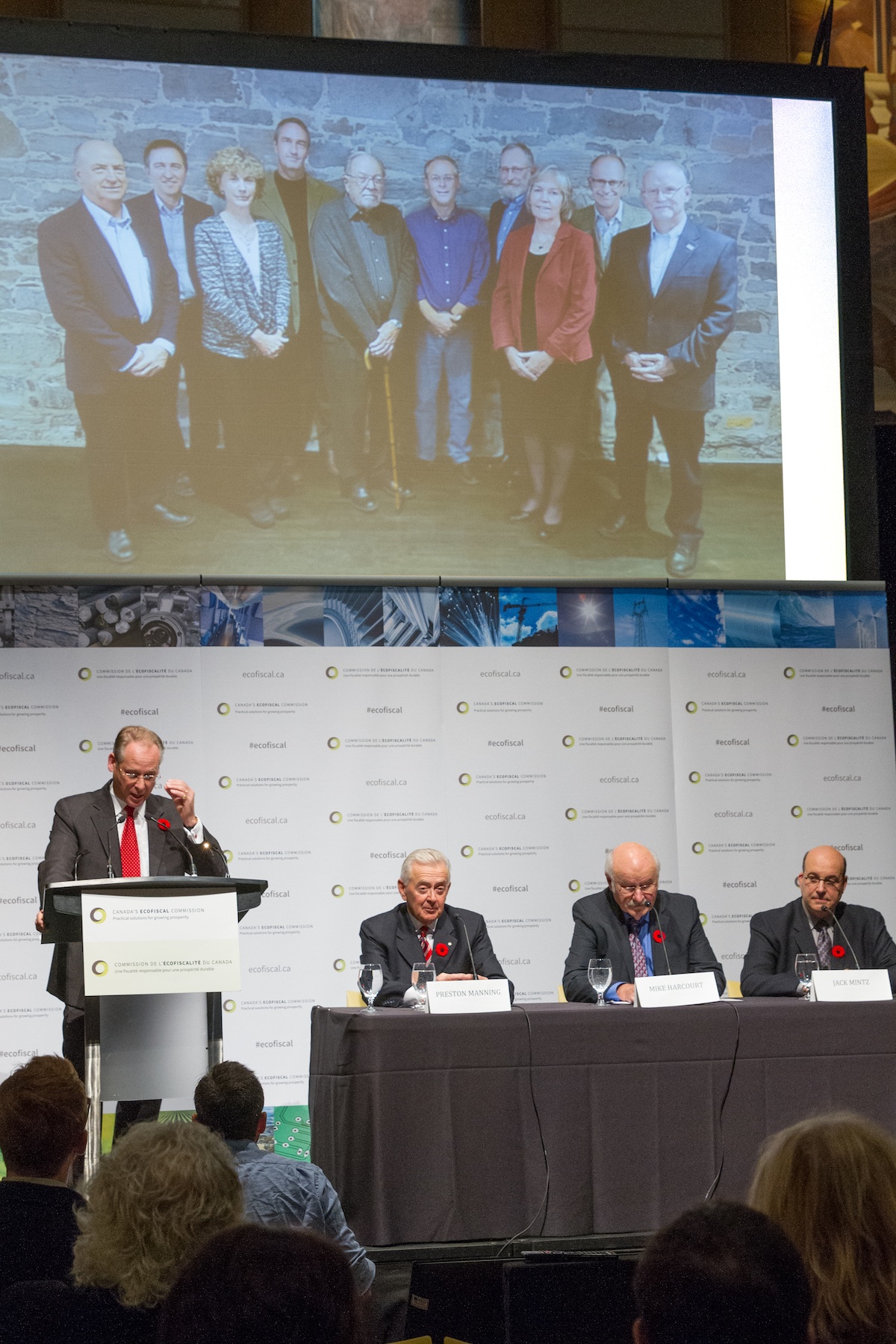 Supporting this Commission is an exceptional group of Canadian leaders — a truly transpartisan Advisory Board drawn from business, politics, the environment and civil society.
Supporting this Commission is an exceptional group of Canadian leaders — a truly transpartisan Advisory Board drawn from business, politics, the environment and civil society.
Our Commissioners and Advisors bring diverse experiences and perspectives to the table—but they all agree that Canada can do better. And they all agree that re-designing our fiscal systems is a crucial step forward.
I want to sincerely thank these individuals for their commitment, their passion, their insights, and their time. They really are remarkable Canadians. Thank you all for your commitment to the idea and for your confidence in our team – and most importantly for your shared optimism that Canadians can come together to make a better future.

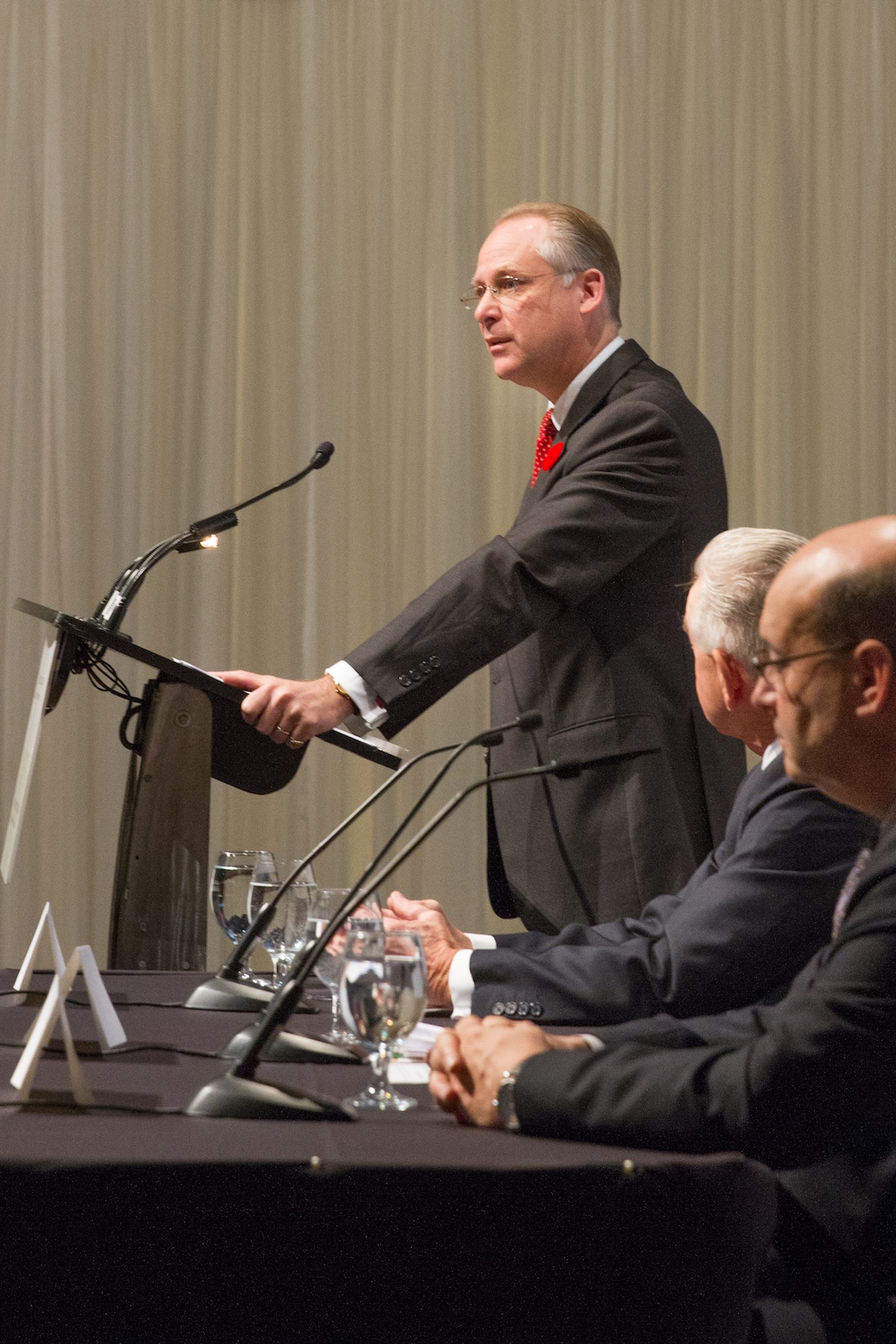
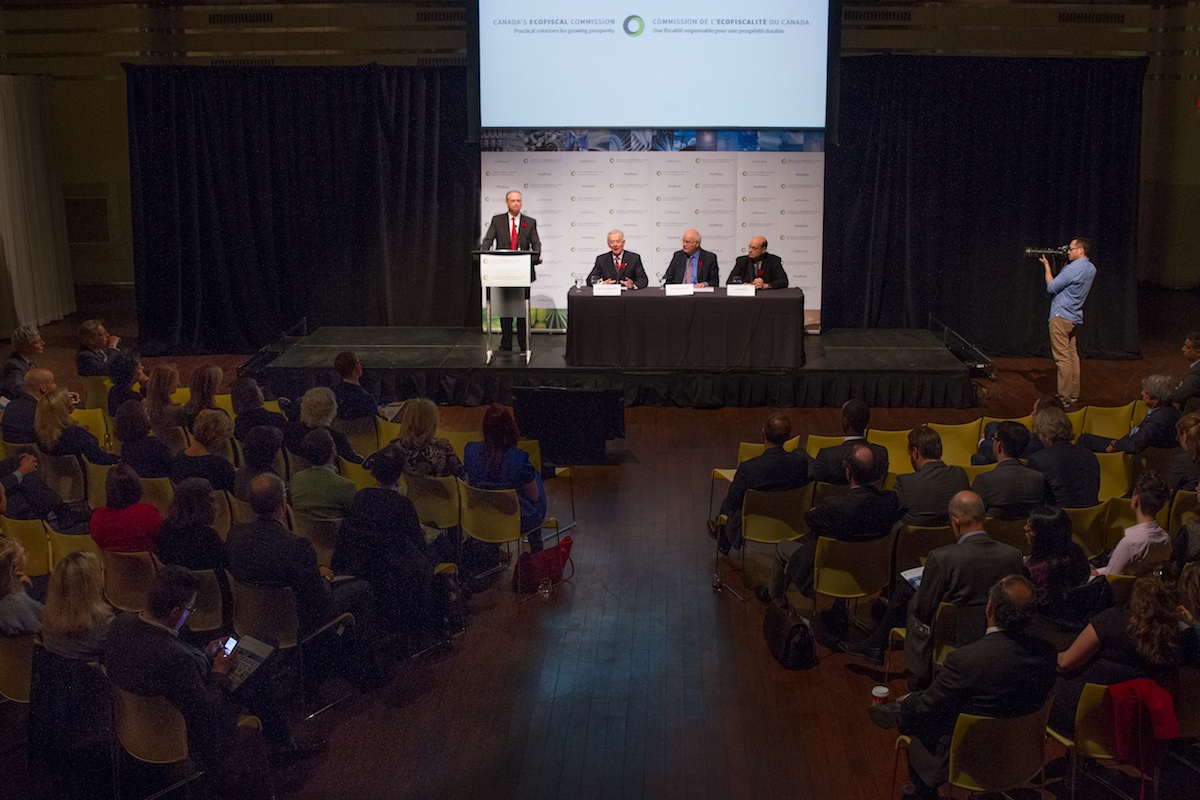
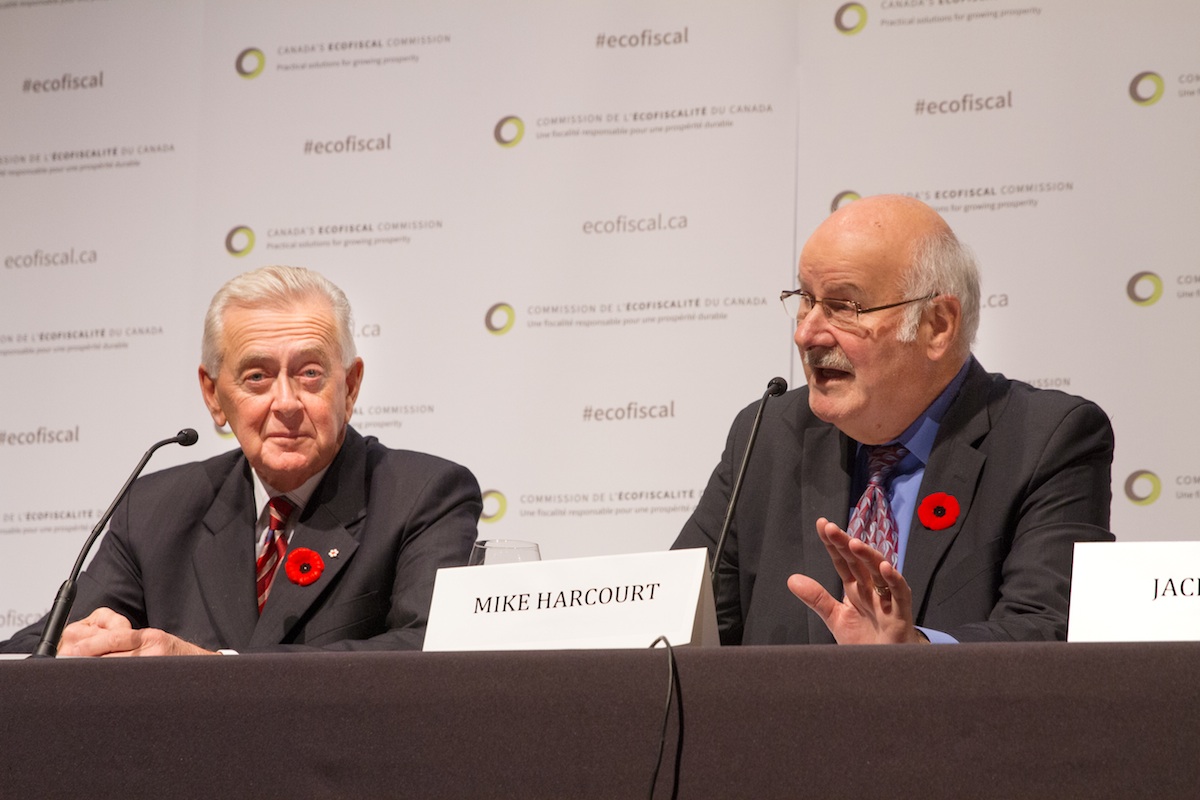
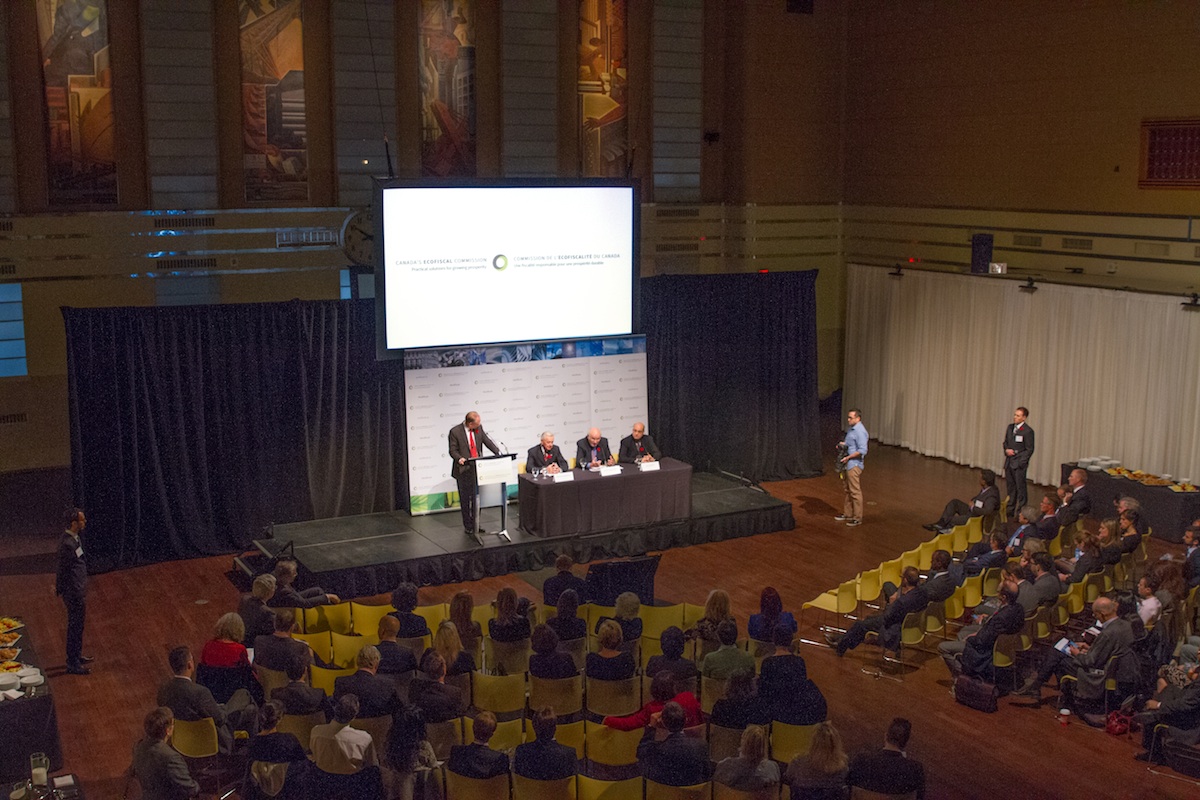
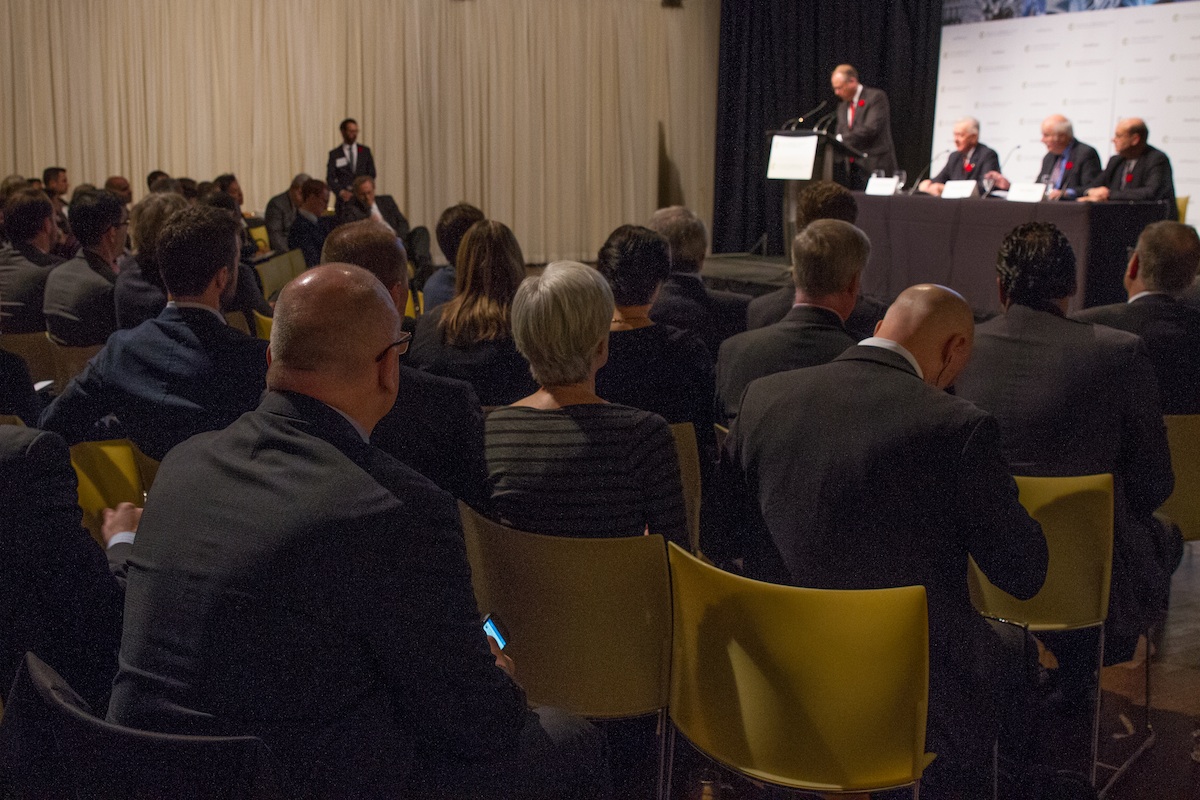




Comments are closed.